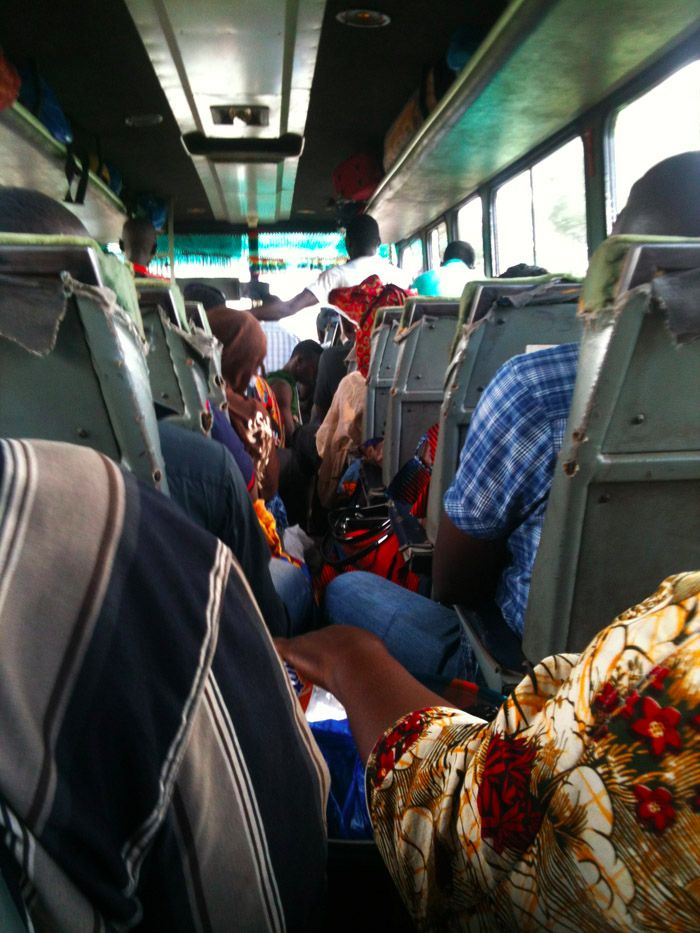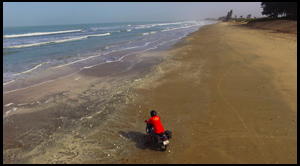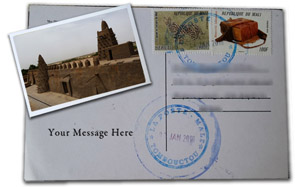Can I write another post about the Bamako to Abidjan bus? Let’s find out.
I was not looking forward to this trip. I was not worried about Ebola (neither Mali or Cote d’Ivoire have recorded a case, and the localities in Guinea closest to the Ivorian and Mali borders have not reported cases in over a month). Side note: I haven’t neglected this blog out of disinterest. I just haven’t had any time to write. Obviously things have changed since I first started writing this post, and there has now been several cases of Ebola in Mali. I will say a few things about that later on.
I also wasn’t concerned about the length of the journey or the discomfort of a crowded Sama Trans bus.
The trip has just lost its luster. The police checkpoints where everyone gets ID’d and a few passengers inevitably get pulled off because they don’t have any and then the negotiations for a bribe so that they can get back on. The customs agents that take off every piece of baggage, looking for one too many pieces of bazin, trying to find the hidden comerçants in order to tax them.
I have been hearing the same Affou Keita songs on these buses for almost four years now.
But this trip did offer something new. Ebola checkpoints and a brand new highway in Cote d’Ivoire. On the Ebola front, Cote d’Ivoire has closed their border with Guinea, and they won’t accept Guinean passengers using Mali as a transit point. Buses originating from Bamako, however, have been traveling freely.
Another novelty of this trip? I took the night bus. Leave at 8PM, arrive in Abidjan at 7 the following evening. It’s still an exhausting trip, but 23 hours beats 33.
I got to the station at 730PM, and the station boss had already started calling passenger names. A knot formed around the door, as it does, and everyone took their position on the starting block, listening for their cue to leap forward. “Traore, Aisha!!!!” “Konate, Ablaye!!!!”
Missing your name can be catastrophic. All bus seats are not created equal. “Polatta, Philippe!!!!!” fell down to the bottom third of the list, and I found myself in the cramped right column of seats, with rows of 3 seats instead of 2. I was fortunate to snag an aisle seat in one of these rows, and I sat down next to a mild mannered high-school-age brother and sister pair. Good start.
I started eating a sandwich I had brought with me. Half of it fell into my lap and on the floor as the bus staggered through the station. Getting buses in and out of these stations is complicated. Space is limited, and there is no coordination between the bus companies, the ambulant vendors, the push cart guys, the ticket hawkers, the taxis, the motos, the tomato can boys begging for coins, and errant toubabous like me. Bus drivers depend on hard slaps against the sides of the coach, indicating when they are about to knock over a boutique or crush a pedestrian. Hard slaps and shrieks.
And then you’re out of the station, fueling up, getting ready to hit the open road for a few kilometers before arriving at Bamako’s exit checkpoint. The starts and stops, so predictable now, are the most frustrating part of this journey.
I stretched my legs in Bougouni and sipped a hyper-sweet nescafe, which made me a bit more social on the way to Sikasso, Sama’s hub and the biggest city in southern Mali. I learned my seatmates were half Ivorian, half Malian. Since their parents got divorced and returned to their respective countries, the brother sister pair regularly made this trip. They were exceedingly polite, offering me every biscuit, pure water sachet and pygmy banana that they purchased through the window. I couldn’t have asked for more from two people with whom I would be sharing a confined space for nearly 24 hours.
I started nodding off in Sikasso, lapsing into that in-between-sleep where your brain shuts down, and your head becomes a pinball ricocheting off the window, the seat in front of you and your neighbors. I didn’t get off the bus, and doing so would have been difficult anyway. The rear door was barricaded with sacks of potatoes and the aisle was a tight rope walk.
At the border, I was herded down the aisle by a vieille mere who possibly had to urinate. She kept tapping my back as I stumbled over the aisle hurdles, but I couldn’t go any faster without falling down or losing a shoe.
Checking out of Mali was straightforward, as it typically is. On the Ivorian side, things had changed. Mali had not yet registered a case of Ebola, but you wouldn’t have known this from Cote d’Ivoire’s efforts to screen passengers. Cote d’Ivoire is – and has been – taking the Ebola threat very seriously.
When I stepped off the bus a temperature gun was pointed at my head. A cool 36 degrees celsius. No one on the bus had a fever apparently. We shuffled off to part two of our health screening.
Both Bintou and I have had our arms jabbed at this checkpoint. Me for meningitis and her for meningitis and yellow fever. There is little in the way of bedside manner. Wince in pain and the guys in lab coats start cackling. But it’s a cheap place to get caught up with your vaccinations ($16 and you have two vaccinations and the yellow certificate).
For the majority of bus passengers on this trip, $16 is too much. So passengers get out before the border, hop on the back of a moto taxi, cross the border freely and then wait for the bus to arrive with the rest of the passengers. This moto ride will set you back $2. For passengers that don’t have money, ID and a vaccination certificate, this clandestine passage is the only option. Unfortunately, it makes it difficult to control for ebola.
Back at the border, we crowded around the counter inside of the health tent. Chicken wire separated us from the nurses and doctors. The lead doctor spoke slowly. “Has everyone noticed that we are doing things differently at the border?” Nods. “We took your temperature, because .. etc etc” It was actually a very informative discussion. Too often here – and when I say “here” I am talking about most of the places I have been to in West Africa – governments impose new policies sans explication. It was encouraging to see this doctor slow things down, take questions, check for understanding — all best teaching practices really.
A few passengers had their vaccination certificates torn up. The certificates were allegedly fake (you can buy fake vaccination certificates in many bus stations). A few passengers had their arms poked. And then we were back on the bus, rolling towards Ferkessédougou, one of Cote d’Ivoire’s larger towns in the north of the country. The sun was coming up, and I slept for an hour or two.
In Ferke, a smooth talking medicine vendor got on the bus and annoyed the shit out of me. I don’t have much more to say about these guys. They sell mystery pills that supposedly cure everything from impotence to “toxic blood,” and they typically make quite a few sales. Like Affou Keita’s ancient tunes, I am tired of them. I wanted to bring up ebola with the pill hawker, but I didn’t have the strength at that point.
Breakfast in Korhogo changed everything. Omelet folded into a baguette and a mug of nescafe half-filled with condensed milk. The guy behind the kiosk has been running this show for a long time, and it is a pleasure watching him work. Pouring the condensed milk from great heights with one hand, cracking an egg with the other. The magic of street food is not just the cheap and delicious eats, it’s also the artistry of the vendor.
Between Korhogo and Bouake, I was feeling very fine. I was at peace with all of my neighbors on the bus, my belly was full, the air was warm but not too hot and the road was smooth. In these conditions, I could have stayed on the bus forever.
But then we arrived in Bouake, the air turned hot, and the driver’s apprentices began causing numerous problems. Apparently one of the passengers gave money to one of the apprentices in order to stop in a village so that he could unload baggage. A big brouhaha followed, because this passenger had his luggage on the roof, and now we were stopping in a place we weren’t supposed to stop in. Everyone was sweating, sucking their teeth, throwing their hands up and yelling at the driver. A very enjoyable 45 minutes.
In Yamoussoukro, I caught a glimpse of the world’s largest basilica on the way in, and I watched about 15 minutes of a Cote d’Ivoire – Cameroon AFCON qualifying match in the Sama station, snacking on peanuts and drinking a tampico. The match was an embarrassment for Cote d’Ivoire, and between Yamkro and Abidjan much of the conversation centered on the deplorable state of Les Elephants.
After 22 hours, we arrived in Abidjan. One additional hour to get settled in the crowded Adjame bus station. I shook off the dust and bid farewell to my seatmates and the vielle mere across the aisle. I glared at the apprentices and walked out of the station.
I had the good fortune of landing in a taxi with a driver that rarely paid attention to the road. Instead, he relentlessly teased the two female passengers in the backseat. Every now and then he turned towards me, shouting “les filles Ivoiriennes sont belles n’est-ce pas?????!?!” It was a very entertaining ride. When I am away from Abidjan, Ivorians’ sense of humor ranks at the top of things I miss.
At Venya, I put my bags down and enjoyed a cold beer on the patio. Drinking a beer in the company of a cool Abidjan evening breeze is heavenly. It’s not difficult to understand why the streetside bar is so successful in Cote d’Ivoire. After a few beers and a delightful poisson braisé, I went to bed for a very long time.
My stay in Abidjan was a short one, and I have been spending some time in Mali over the past several months. In a future post, I will share the latest developments in restaurant world — namely some catering projects that may help us get to where we want to be revenue wise — and what exactly I’m doing in Mali. I might talk about Ebola also.
à tout moment






Great post, but oh my, I’m feeling claustrophobic by looking at that bus picture…
Well, firstly I am delighted to read you again after so long, and secondly this was enthralling. I jumped when someone blasted a car horn outside, I was so there on that bus!
Phil ive been reading your blog for years now. Always a pleasure when it pops up in my rss deed. Im in canberra australia a long way from where you write. All the best. Theo
What a wonderful post! Having grown up mostly in Cote d’Ivoire and experienced Africa up close, I could imagine being there again. I am SO glad I never had to ride on a bus!
Great work amazing pics and wonderful article. Loved it.